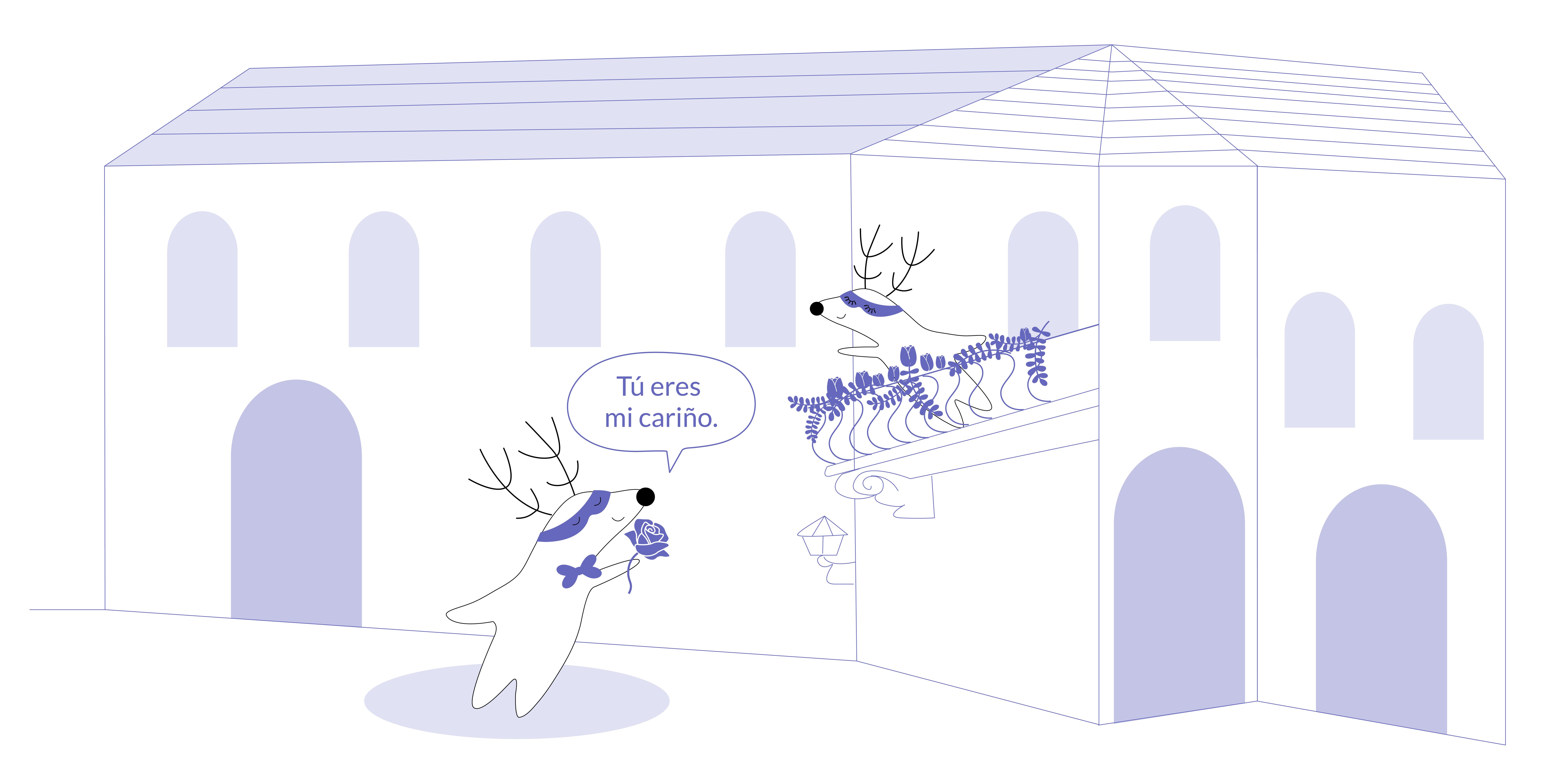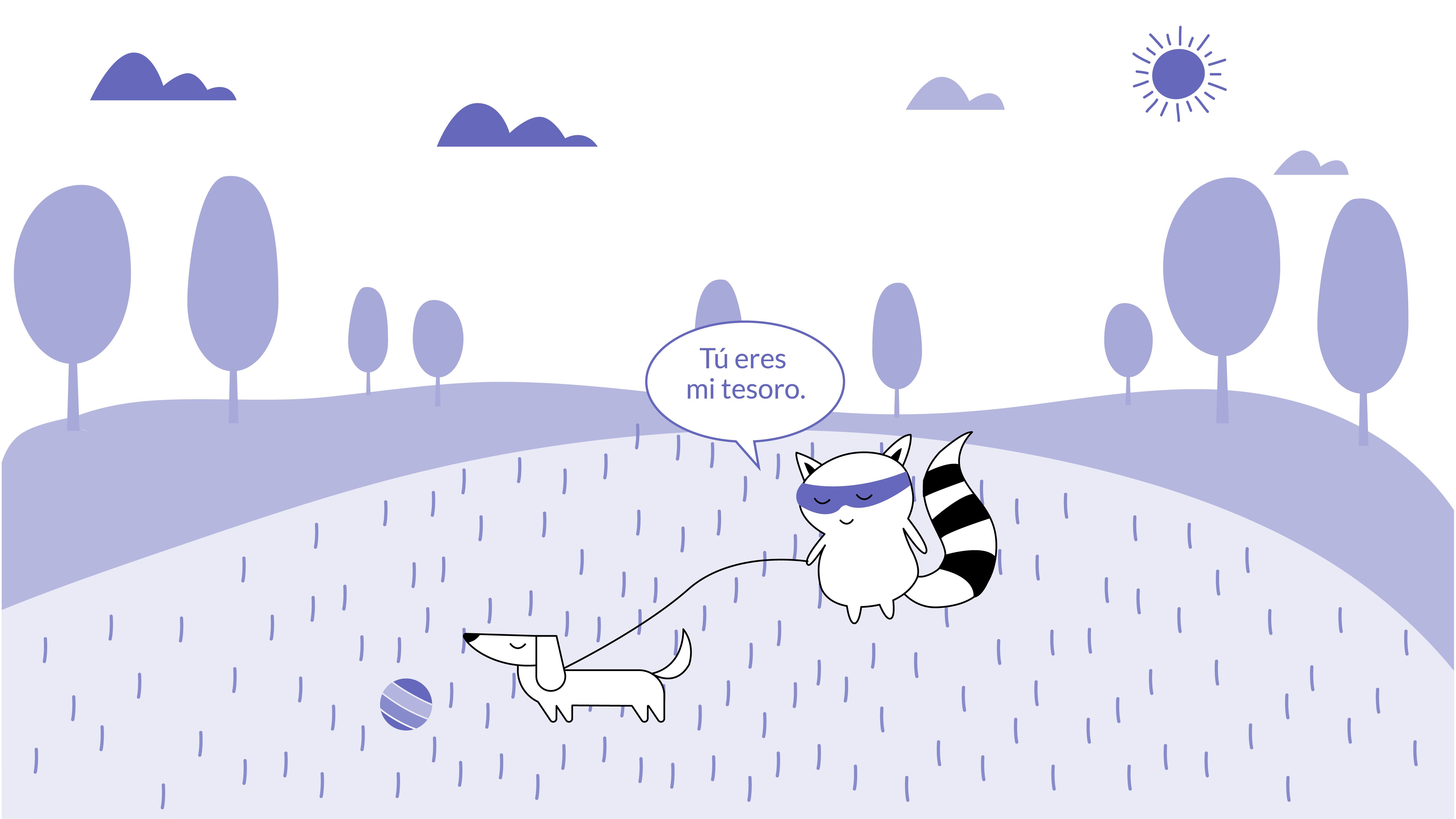
Understanding cultural and lingual nuances is pivotal for anyone learning a new language, and Spanish is no exception. Spanish nicknames, or apodos, are a significant aspect of the language's culture, manifesting the warmth, affection, and camaraderie shared among friends, family, and even acquaintances.
Cute Spanish nicknames are not just terms of endearment; they are a window into the social dynamics, cultural values, and emotional depths of Spanish-speaking communities. For learners, becoming familiar with these nicknames can greatly enhance the richness of their conversational skills and cultural understanding, making interactions more personal and authentic.
For Spanish learners, grasping the significance and appropriate use of nicknames can be as vital as mastering grammatical rules and Spanish vocabulary. Similar to insults, nicknames often carry meanings that go beyond the literal, reflecting personality traits, physical characteristics, or significant events. When used correctly, nicknames can shorten social distance and foster a sense of belonging and intimacy with Spanish speakers.
However, misuse or misunderstanding of a Spanish nickname might also lead to an awkward situation or misinterpretation. Therefore, learning about these affectionate terms not only helps you comprehend the language better but also helps you navigate the social landscapes of Spanish-speaking societies more effectively.
Learn Spanish with Langster
Spanish Nicknames for Parents
Most Spanish nicknames for parents are especially rich with affection, respect, and familial bonds. These terms not only signify a biological relationship but also embody the unique emotional depth and bond shared between a parent and child in Spanish culture.
In this section, we will explore some of the most common and adorable nicknames used for parents, shedding light on their meanings and the feelings they convey.
Viejos
Spanish
English
Viejos.
Old ones.
Viejos literally translates to "old ones" in English, but when used as a nickname for parents, it is far from being derogatory. Instead, it's a term of endearment reflecting respect and affection.
It's akin to saying "my old folks" with a warm heart, acknowledging their wisdom and experience.
Pa
Spanish
English
Pa.
Dad.
Pa is a shortened form of papá, meaning "dad" in English. This nickname is widely used for its simplicity and warmth. It conveys a sense of closeness and familiarity, often used by children of all ages when referring to their father in an affectionate manner.
Má
Spanish
English
Má.
Mom.
Similar to Pa, Má is the affectionate shorthand for mamá, translating to "mom." It's a testament to the comforting and nurturing relationship children share with their mothers, filled with tenderness and love.
This nickname is universally understood and cherished among Spanish speakers.
Papi or Mami
Spanish
English
Papi.
Daddy.
Mami.
Mommy.
Papi is another affectionate term for father, imbued with love and adoration. It translates closely to "daddy" in English and is often used by younger children, though adults may use it as well, particularly when reflecting on fond childhood memories with their fathers.
Similarly, mami is one of the most common nicknames in the Spanish language and is short for "mother."
Spanish Nicknames for Lovers
Sweet Spanish nicknames for lovers paint vivid pictures of affection, teasing, and deep emotional connections. These words of endearment are often playful and sweet, capturing the essence of romance and intimacy in just a few syllables. They can range from variations of the word for "love" to playful teases that signify a close and comfortable relationship.
Such cute nicknames in Spanish are a testament to the creativity and warmth infused into the Spanish language, making romantic expressions colorful and heartfelt. Here, we explore some of the most endearing and commonly used nicknames for lovers in Spain and Latin America:

Cariño
Spanish
English
Cariño.
Darling.
Cariño is an endearing nickname that translates to "dear" or "darling" in English. It embodies affection and love and is often used between couples to express tenderness and emotional closeness. This nickname is versatile and widely embraced in various Spanish-speaking communities.
Mi Amor
Spanish
English
Mi amor.
My love.
Amor simply means "love" in English, but as a nickname, it carries a deeper resonance of adoration and affection. It's a universal term of endearment that transcends linguistic barriers, signifying the profound bond between lovers.
Mi Vida
Spanish
English
Mi vida.
My life.
Translating to "my life," Mi Vida is a deeply affectionate term indicating that the partner is an integral part of the speaker's life. This romantic nickname expresses the idea that life would not be as meaningful or complete without the other person.
Corazón
Spanish
English
Corazón.
Heart.
Corazón means "heart" in English, and as a nickname, it signifies love and affection at the deepest level. Using corazón implies that the person holds a special place in the speaker's heart, reminiscent of saying "my heart" in English.
Mi Cielo
Spanish
English
Mi cielo.
My heaven.
Meaning "my sky" or "my heaven," mi cielo is a nickname that conveys profound affection and admiration. It suggests that the person brings brightness and beauty into the speaker's life, much like the sky itself.
Alternatively, you might say:
Spanish
English
Mi pedacito de cielo.
My little piece of heaven.
Tesoro
Spanish
English
Tesoro.
Darling.
Tesoro translates to "treasure," a term of endearment that implies the partner is precious and valued immensely. It reflects the idea of someone being irreplaceable and cherished above all else.
Mi Rey
Spanish
English
Mi rey.
My king.
Mi rey translates to "my king," and is another way to refer to your male loved one. It refers to the importance this person has in your life.
Spanish Nicknames for Friends
Cool Spanish nicknames for friends are as varied and colorful as the regions that speak the language. They encapsulate the warmth, affection, and camaraderie that define friendships in Spanish-speaking cultures.
Unlike formal names, these nicknames are often humorous, affectionate, or based on personal traits and play a pivotal role in strengthening bonds among friends.
Below, we explore some of the most endearing and common nicknames in Spanish used for friends across different countries. These nicknames illustrate the cultural diversity and creativity inherent in the language. Don't hesitate to take a Spanish class to start learning them.

Compa
Spanish
English
Compa.
Partner.
Used widely across Latin America, compa is short for compañero/a, meaning "companion" or "partner." It signifies camaraderie and solidarity, often used among friends who share a strong bond or have been through significant experiences together.
Parce
Spanish
English
Parce.
Buddy.
Parce is colloquial for parcero/a, a term of endearment for friends used predominantly in Colombia. It conveys a sense of closeness and trust, similar to saying "buddy" or "mate" in English.
Cuate
Spanish
English
Cuate.
Buddy.
In Mexican Spanish, cuate refers to a friend or buddy, originally stemming from the Nahuatl word for twin. This nickname implies a deep connection as if the friends share a bond as close as twins do.
Pana
Spanish
English
Pana.
My friend.
Pana, primarily used in Venezuela and Colombia, is another way to refer to a friend. The term expresses trust and reliability; a pana is someone you can always count on.
Chamo
Spanish
English
Chamo.
Kid.
Chamo is commonly used in Venezuela both for "kid" and as a casual term among friends. It can be affectionate and is used to refer to friends in an informal and friendly manner.
Colega
Spanish
English
Colega.
Colleague.
While colega directly translates to "colleague," it can also refer to a friend in Spain and some parts of Latin America. The use of colega implies a friendship that might have started in a formal setting but has grown to become more personal and genuine.
Spanish Nicknames for Children
Children are often bestowed with endearing nicknames that reflect affection, tenderness, and sometimes characteristics unique to them. These Spanish nicknames vary widely across Spanish-speaking countries, capturing the warmth and familial intimacy within (and are very important when you learn Spanish).
Here are six common nicknames used for children in the Spanish-speaking world, each carrying its own special significance:

Chiquito/a
Spanish
English
Chiquito.
Little one.
"Chiquito" for boys and "Chiquita" for girls translates to "little one" in English. These nicknames are widely used to denote affection for children, emphasizing their youth and the fondness felt toward them.
Nene/a
Spanish
English
Nene.
Boy.
Nena.
Girl.
Nene (boy) and nena (girl) are affectionate terms equivalent to "kid" or "babe" in English. Parents, grandparents, and close family friends commonly use them to refer to young children.
Peque
Spanish
English
Peque.
Small one.
Short for pequeño (small), peque is a gender-neutral nickname used to address children, highlighting their small size and innocence. It's a term of endearment that is both playful and loving.
Tesorito
Spanish
English
Tesorito.
Small treasure.
Tesoro means "treasure," and adding the diminutive "-ito" turns it into tesorito, meaning "little treasure." This nickname is used to express how precious a child is to their family.
Angelito
Spanish
English
Angelito.
Little angel.
Derived from ángel, meaning “angel,” angelito translates to "little angel." This nickname is often given to children who are seen as innocent and pure-hearted.
Príncipe / Princesa
Spanish
English
Príncipe
Prince
Princesa
Princess
Príncipe (prince) and princesa (princess) are regal nicknames bestowed upon children to convey their importance and cherished status within the family, making them feel loved and valued.
Common Spanish Nicknames (Shortening Names)
In addition to the affectionate and symbolic nicknames used in Spanish-speaking cultures, there's a widespread practice of shortening or modifying personal names. This tradition not only simplifies communication but also adds a layer of familiarity and affection to interpersonal relationships.
The origins of these shortenings can be quite diverse, ranging from historical roots to linguistic ease to cultural adaptations. In some cases, these funny Spanish nicknames have become so common that they are widely recognized as standard alternatives to the given names.
Below, we explore six common Spanish names and their popular shortenings, revealing the interesting stories and cultural nuances behind them.
Francisco and Paco
Francisco is a prevalent name in Spanish-speaking countries, often shortened to Paco. The nickname originated from the religious phrase "pater communitatis" (father of the community), which refers to Saint Francis of Assisi.
Over time, Paco became associated with anyone named Francisco. For example:
Spanish
English
¿Has visto a Paco? Siempre es el alma de la fiesta.
Have you seen Paco? He's always the life of the party.
José and Pepe
The name José, equivalent to "Joseph" in English, is frequently abbreviated to Pepe. This surprising transformation stems from the initials "P.P." for "padre putative" (the putative father, referring to Saint Joseph as the foster father of Jesus).
Thus, Pepe is an affectionate and culturally rich nickname for those named José, illustrated in examples like:
Spanish
English
Pepe y yo iremos al cine esta noche.
Pepe and I will go to the movies tonight.
María and Marí
María, a very common name, is often affectionately shortened to Marí among friends and family. While not as drastic a change as some other names, the dropping of the final 'a' adds a touch of uniqueness and personal touch.
Spanish
English
Marí es la mejor cocinera de todos.
Marí is the best cook of all.
Guillermo and Memo
Guillermo, the Spanish version of "William," is frequently shortened to Memo. This nickname comes from a playful linguistic twist, focusing on the second syllable and adding a diminutive -o, common in Spanish to indicate affection or closeness. For example:
Spanish
English
Memo tiene un talento increíble para la música.
Memo has an incredible talent for music.
Eduardo and Lalo
Eduardo, similar to "Edward" in English, is often affectionately called Lalo. This nickname originates from a common practice in Spanish of using the latter part of a name as a base for diminutives or affectionate versions, especially when the initial syllable is a common prefix like "Edu-" in this case.
Spanish
English
Lalo siempre sabe cómo levantar el ánimo.
Lalo always knows how to lift the spirits.
Margarita and Rita
The name Margarita, which translates to "Margaret" in English, is commonly shortened to Rita. This short form arises from taking the end of the name and adding a diminutive touch, a common linguistic practice in Spanish.
Spanish
English
Rita hace las mejores margaritas de la ciudad.
Rita makes the best margaritas in town.
The Bottom Line

Nicknames are an integral part of Spanish language and culture. They create and reflect close-knit social bonds and often celebrate individual uniqueness. Whether you're called cariño by a lover or compa by a friend, each nickname bears a meaning that transcends mere labels, tying into the deeper threads of cultural identity and personal relationships.
So, the next time you engage with others in Spanish, consider the richness these affectionate monikers bring to everyday interactions.
And, elevate your mastery of the Spanish language by immersing yourself in its rich cultural expressions with Langster. Whether you're a beginner eager to lay a robust foundation or an advanced learner looking to refine your fluency, Langster offers an extensive range of resources tailored to your learning pace. Start today!
Learn Spanish with Langster









